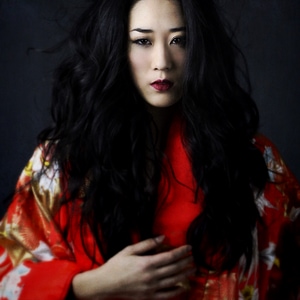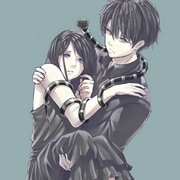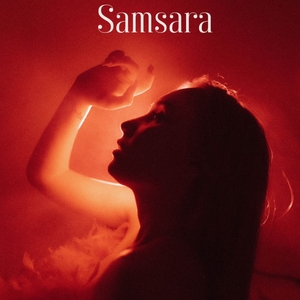I have put the duality away. I have seen that the two worlds are one. One I seek. One I know. One I see. One I call.
Rumi
The next few days in Romania were well-spent in peace. I visited Bran and Peleș Castle with our tour guide, Mikhail and the experience was nothing short of the extraordinary. I also saw the sculpture of Elizabeth of Wied, Carlos I’s wife, in the garden of Peleș Castle and found it intriguing as how the sculptor had craved out a moment of plainness and simplicity.
I returned to the hotel at night, and packed the luggage for my next flight to Türkiye. I took a shower before bed, and checked my phone. I looked at the pictures that my elder sister, Darcie had sent me of her five months pregnancy. I scrolled through them, and replied to some of her messages before going to sleep.
Istanbul has had its own unique charm and vibrancy compared to its Capital Ankara. The architecture of Haga Sophia and Blue Mosque; a perfect blend of Roman and Islamic artistry, Topkapi Palace Museum, and Basilica Cistern under the bustling streets and markets of Istanbul are reminiscence of Ottoman Empire’s splendor as well as the artistic legacy of Byzantine Empire.
I took a tour to Haga Sophia, a former Byzantine Church, then, Sultan Ahmet’s Mosque later. The latter one is named Blue Mosque after its blue interior-design crafted with 20,000 blue Iznik tiles and detailed glass-work. The stained glass windows reflected off the natural light as blue, and being in the place makes you feel stepping into a world of tranquility and peace.
As I didn’t have much knowledge about the architecture, I couldn’t understand the meaning behind the floral designs and simply stared at the pattern on the walls. A man standing next to me, who was also looking at the mosaic pattern said, “The floral designs on these mosaic tiles depict connection to eternity and single consciousness.”
“Are you a tour guide here?” I asked as I looked back at the pattern.
“I’m Yousef!” The man introduced himself. “Professor at Elif University of Art and History.”
“I’m Rhea Cordon” I shook his hand, and asked him more about the mosaic art.
“How do these flowery designs depict eternity?”
“When you look at the pattern, it doesn’t break, neither it stops nor it ends at one particular point. Instead, it’s a kaleidoscope; an ever-changing consciousness that’s not fixed.” He explained to me, and I found his words interesting.
“We all are multiple consciousness, connected like these small tiles in an intricate pattern of existence that lead us all to the greater design of eternity.”
“If you hadn’t said it yourself, I’d have rendered you a Doctorate of Philosophy.” I commented which made Yousef laugh.
“I am that too.” He chuckled. “Art and Philosophy aren’t much different.”
“I guess so.” I half agreed to him. Art is a philosophy of life, and life itself is a philosophy. One cannot understand the other, without understanding the essence of the one.
“I’m delivering a lecture tomorrow’s noon on Heterotopia of Illusion and Compensation at the university.” He gave me his card, and an invitation to his lecture.
“If you’re interested, you can come.” I took the card from him, and told him that I’d see to it. The man left, and I was again left alone to my own thoughts and contemplation.
I came out of the Blue Mosque, and checked the notification on my phone. It’s a message from my younger brother, Alec, who sent me a picture of himself with his fiancée.
‘I finally proposed to her, and she said yes.’ It read, and I congratulated him through text. Alec instantly read it and typed, wish you were here. Among the siblings, I was the one who was the least in contact, and would rarely appear at the family dinners too. I snapped a selfie of myself in front of the mosque, and sent it to him.
‘Of course, won’t miss the rehearsal dinner.’
I sat on a bench nearby, and sent the same picture to my therapist. Natasha asked me how I had been lately, and I told her I was feeling much better after taking a break.
The next day, I went to attend Yousef’s Lecture at Elif University. I was already 15 minutes late, and had missed the introduction. I looked for an empty seat and sat down immediately.
“Foucault describes Heterotopia as a space made of multiple spaces or counter-sites, and each has unique meaning and function in relation to the other. The universities, the museums, the hospitals, the prisons, the cemetery, the bar and the garden, all are Heterotopias either of crisis, time, deviation, emplacement, compensation or juxtaposition. The Heterotopia functions either to create a real space to another which is perfect- compensation- or exposes to all real spaces by creating alternative or imaginary space which is illusion. I’m not concerned about what Foucault had actually meant, but rather what could Heterotopia of illusion and compensation possibly mean to us. I believe that spaces can’t be only physical, but can be of mind and consciousness. Our mind can either create a new space or expose to all real spaces. The reality is what we make of it. However, the consciousness also creates an alternative space, a perfect place which we call escapism. In philosophy, we call it enlightenment and in the field of psychology, we label it as delusional personality disorder. Nonetheless, if places are real, the delusion of certain group or people must also be treated real that act as their compensation against another world and space. Be it a field of Philosophy, Art, Psychology or Culture, revisiting Heterotopia can open further research in our field of work.”
Yousef concluded his lecture, and applause echoed through the hall. I got up from the seat, and went to see him after the lecture. He’s glad to see me.
“I must say your Lecture was an eye opening.” I told him.
“Would you mind joining me for coffee in my office?” Yousef offered, and I accepted it out of courtesy. I followed him to his office and he showed me in. I took a seat across his desk, and took a look at his office till coffee arrived.
“Did you find your answer?” His question caught me by surprise, but he clarified himself. “When I met you last time, you were confused about the collective consciousness.”
“I’m more confused than before.” I answered taking a sip of my coffee.
“You ought to be.” He answered. “One can only experience such things instead of being explained to.”
“You scare me more than my therapist.” I thought of Natasha.
“I dare not.” He sounded mock-offended. “A psychologist limits your imagination, whereas a philosopher will take you beyond your madness.”
“Am I mad if I question such things?” I asked him.
“One must start from something, and madness is prerequisite. Weren’t all saints and philosophers labelled mad for their enlightenment?”
“Fair enough”. I commented.
“If you’re free tonight, I’d like for you to join my niece and me at Hodjapasha Culture Center to see the whirling dervish.”
“The what?” I became confused, but Yousef was patient enough to explain it to me.
“It’s a Sufi dance embedded in mysticism. You will know when you see it.”
Yousef had booked me a ticket, but didn’t let me pay for it. I departed from the hotel, and arrived at the place where I met with Yousef and his niece. Irem was a 20 years old university student studying art and photography, and she’s excited to see a foreigner interested in their culture. Yousef led us inside a hall, and we sat in a semi-circle with a round stage in the middle.
The ceremony started with a customary prayer. Then, the instruments and music started playing, and the semazens entered the stage matching their rhythm to the music. The dervishes were wearing a black robe over their long white skirt, tennure, with a waistcoat, and a brown conical hat, Sikke on their head.
They first bowed to their Sema Master, secondly, to each other, and finally, on the ground. Afterwards, the dervishes stood up and removed their black cloak to indicate resurrection from grave and spiritual freedom. They stepped forward with arms crossed over their chest, and raised their hands in the air. Then, the dervishes started whirling in anti-clockwise direction. Irem told me that the right palm is raised outward to receive Divine blessing from God, and the left one is bent inward to pass this blessing to the world. There are total four salems in the whirling performance; each of ten minutes till Sema Master tells the dervishes to stop.
It was the fourth and final salem, and I was too immersed in the performance that I didn’t see the whirling dervish in the center. He wasn’t there before, but had been whirling with the other dervishes. His face carried peace; his head was tilted to side and eyes were closed, lost in ecstasy. I felt I had seen him somewhere before, from time I had not known.
I felt tug at heart upon seeing him dance to the Divine Call; the destruction of material body and ego. In the paradox of transiency and unity, he looked as if he had achieved it All and asked me to find it as well. Nothing in this universe is separated from another, it’s an illusion.
‘The Self is an illusion to be overcome.’
This is what the separation meant in Dervish Dance. The separation of body and soul, higher and low, intellect and spirit, ego and consciousness, eternal and mortal, life and death and the singularity, Baqa is achieved through the annihilation of self, Funah.
He was my separated Self from the other world.
Unable to control myself, I got up from the seat and walked up the stage to get to him, but he was fleeting, slipping through my fingers and I couldn’t stop him even if I had wanted to.
I stood in the center of stage as those dervishes whirled around me, and he was nowhere to be seen. I had lost him.
The horror of that loss me made my eyes stung with tears in helplessness.
Where did he go?
“Are you crying?” Irem’s voice broke me out of reverie, and I touched my face to see that I was crying. I got up from my chair and ran to the stage to see Sema in the middle of dervishes. The one I was looking for, wasn’t there.
I quickly apologized to them, and ran out of the hall ignoring the calls of Yousef and Irem behind me. I crouched down on the stairs, and broke down into tears upon loss of a person whom I didn’t even know.
Who was he?
Irem sat beside me, and patted my back to comfort me.
“Are you okay?” She asked me and I shook my head. “Let us drive you back to the hotel.”
Yousef drove me back to the hotel and asked me to call them if I needed anything. I apologized for making them worry, but assured them that I’d let them know if I needed something. After going to my room, I thought about him, but couldn’t remember his face. It’s like seeing someone in dream and you know their presence and voice, but have never seen their face.
I opened my phone and sent a message to Natasha about seeing a man at theatre.
‘Is it happening again?’
She texted back, and I furrowed my brows in confusion. Why did she say it was happening again? I wasted no time and pressed a call to her.
“Hello, Rhea?” There’s an urgency in her tone. “What do you mean by it’s happening again?” I inquired from her.
“You don’t remember, do you?” She took a sharp breath and spoke, “It’s not your first time telling me that you are constantly seeing someone.”
“I have never told you.” I was bewildered at her revelation.
“Rhea, I think you should come back and receive your proper treatment.” She sounded disappointed and I couldn’t tell why.
“What are you saying?” I asked for the clarification. “I’m already on anti-depressant pills.”
“You and I both know what I am talking about. It’s never about depression.” She paused for a moment before speaking, “You clearly show the symptoms of Bipolar disorder. The hallucinations—"
I disconnected the call, and turned off the phone when she called again. I didn’t have bipolar disorder. Natasha had told me earlier that I had had depressive episodes, and experienced auditory hallucination because of them.
It’s my first time seeing him, and definitely didn’t recall mentioning anything to Natasha. I thought about my flight and landing in Romania. I was on train—
‘The train.’ I recalled.
I might have seen him on the train, then what? Bits and glimpses of him flashed across my mind and my head started hurting. The last time, I saw him was in Western Sahara Desert. I opened my laptop to check my flight history, but I had never been to Morocco. The scar on the arm was also gone, and there’s no injury on my hand either.
Did I remember it wrong?
I opened my laptop and searched the discussion forums where someone might have experienced the same thing. There were many accounts of people telling others that they had Déjà vu or felt that their reality had changed, but couldn’t explain it. One said, that he used to have a fountain pen, but one day it was suddenly gone, and no one in his house had a memory of it anymore.
I immediately looked for the hairpin in my luggage, but it’s gone. I recalled having it with me when I stabbed the men at the tavern, but lost it after entering the desert. I slumped down on the floor as I tried to process it.
I thought of the places that had previously led me to another world, and recognized a chain of events forming a pattern. I saw statue of Elizabeth of Wied, sewing socks in Peleș Castle which later led me to find the souks of Morocco and got me into the desert where the Serpent had attacked us. The snakes are connected to Gorgon Medusa, and my arrival in Istanbul and visiting the places near Basilica Cistern was no coincidence either.
Things had been specifically arranged for me to see them. I decided to visit Basilica Cistern to see what clue I might find there.











Comments (0)
See all